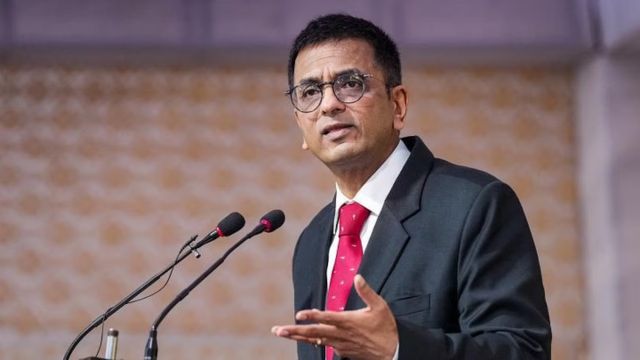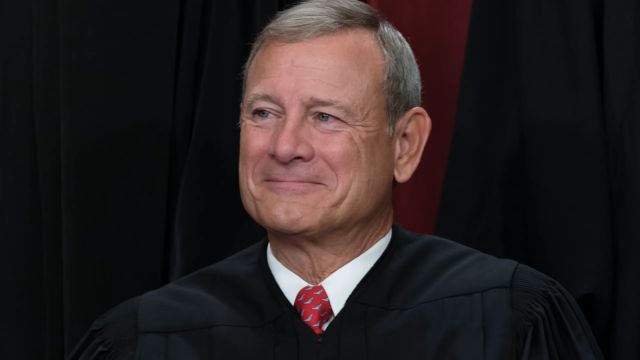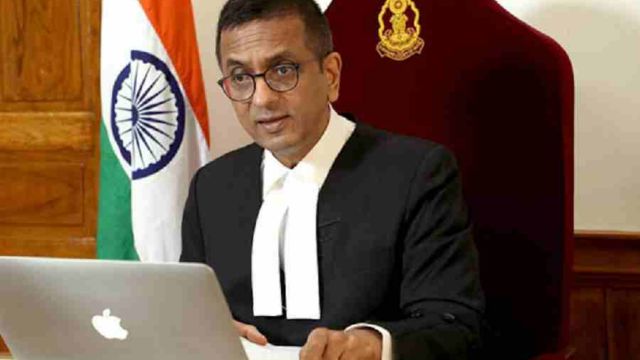Supreme Court Chief Justice Warns Against AI Deployment in Election Year Amid Controversy
Chief Justice John Roberts of the Supreme Court issued a cautionary note on Sunday on the use of artificial intelligence (AI) in case decisions and other significant legal topics, raising concerns about the future of the federal courts.
The chief justice of the federal courts made these comments in his yearly year-end report, which omitted any discussion of the ongoing disputes involving his court, including demands for increased openness and mandatory ethics reform for the judges.
Given that the legal industry as a whole is “notoriously averse to change,” Roberts recommended that courts adopt new technologies cautiously.
“AI has great potential to dramatically increase access to key information for lawyers and non-lawyers alike,” he stated. “But just as it risks invading privacy interests and dehumanizing the law.”
“But any use of AI requires caution and humility,” he stated. “With optimistic forecasts regarding the development of artificial intelligence as 2023 comes to an end, some may be wondering if judges would soon become obsolete. Though I’m sure we’re not, we’re also confident that technology advancements will keep changing the nature of our profession.”

In addition, Roberts provided an overview of the functioning of the 13 circuit courts, 94 district courts, and his own Supreme Court. Prior year-end reports have addressed finances, growing caseloads, judges’ compensation, and courtroom security.
The chief justice did not anticipate that his court would hear cases in the upcoming year. Instead, he and his colleagues plan to take on several politically contentious cases, many of which center on legal issues and the reelection campaign of former president Donald Trump.
Election-related Exams
While the Supreme Court has handled its fair share of election cases over the years (recall Bush v. Gore from almost 25 years ago), 2024 is expected to make that legal drama seem insignificant in contrast.
Whether or whether states are able to remove Trump’s name from primary and general election ballots may be the first worry. The highest court in Colorado granted the request, and now the United States Supreme Court is being asked to determine the scope of a 14th Amendment clause that bars anybody who “engaged in insurrection” from holding public office.
State courts around the nation are debating whether or not Trump’s involvement in the Capitol riots on January 6 and 2020 election meddling will bar him from running for office again.
The “Super Tuesday” primaries in 16 states are scheduled for mid-February or early March, and the justices are expected to decide on the issue by then.
The 68-year-old Roberts will probably play a major role in defining the voting disputes that his court will hear and ultimately settle in his capacity as “first among equals,” possibly even as the deciding vote.
Even with a 6-3 conservative majority, the chief justice has frequently attempted to strike a balance by adopting a less-is-better stance, which has irritated his colleagues who lean farther to the right.
It appears that the court will be involved in election-related disputes despite any unwillingness to remain neutral.
Chief lawyer at the Constitutional Accountability Center Brianne Gorod stated, “Given the number of election disputes it might be coming, a lot of them could be moving very quickly and will be very important to see what the court does.” “Sometimes the Supreme Court has no choice but to be involved in the election cases because there are some voting rights and election cases that the justices are required to resolve on the merits.”
Civil rights organizations have already filed redistricting challenges to voting borders in GOP-leaning states, which the high court is now reviewing.
This includes the first congressional district of South Carolina and alleges a racial gerrymander by the Republican-led legislature. In April 2024, a decision is anticipated.

The Supreme Court may also be called to comment on emergency challenges on limitations on voting by mail, deadlines for provisional votes, polling places, the Electoral College, and other issues.
A few weeks before the initial impeachment of President Trump by the House in 2019, Roberts attempted to minimize the role his court played in partisan political debates.
Roberts stated at the time, “People tend to see everything in those terms when they live in a polarized political environment.” “That’s not how we at the court function and the results in our cases do not suggest otherwise.”
However, the court’s standing as an impartial arbitrator of the law and the Constitution has kept eroding, reaching all-time lows.
Six years ago, 83% of respondents to a Fox News poll expressed trust in the Supreme Court; today, just 48% of respondents share that sentiment.
The Trump Administration
In 2024, Donald Trump will be subject to separate criminal prosecution in four jurisdictions: two federal cases on document mismanagement and 2020 election influence; two state prosecutions involving the same issues in Georgia and New York, respectively, and payments of hush money to a porn star.
With or without the approval of the US Supreme Court, the possibility of several criminal prosecutions for a prominent Republican contender and former president may derail an already tumultuous election campaign.
To stop what he perceives to be politically motivated prosecutions, the former president has filed some applications in each case to remove the accusations, postpone the trial, and be granted public speaking rights.
Recently, the Supreme Court declined to expedite a different appeal over Trump’s planned criminal trial, which was set to begin the day before “Super Tuesday.”
In the 2020 election interference lawsuit, Trump’s claim of presidential immunity is being contested by Special Counsel Jack Smith. The prosecutions, according to the former president, are akin to a “partisan witch hunt.”
The justices may swiftly return to the case later this winter once a federal appeals court rules on the merits in the upcoming weeks, even though they are now staying out of it.
This term, however, the judges will determine whether or not certain defendants from the Capitol riot on January 6 can appeal their convictions for “corruptly” blocking “official proceedings.” It is possible to have oral arguments in February or March.
The same obstruction statute is being applied to over 300 individuals for their alleged attempts to block Congress’s certification of Joe Biden’s triumph over Trump in the 2020 presidential election.
The former president is accused of obstruction, and the outcome of the high court’s decision could have an impact on both the date of the trial and the nature of Trump’s legal defense against the special counsel’s charges.
Look forward
With a strong conservative majority, the Supreme Court will hear arguments and render decisions in the upcoming months on some contentious issues, including:
– Abortion and availability of mifepristone, a medication often used to terminate pregnancies
– The executive branch’s authority, as well as an attempt to severely limit the federal agencies’ ability to interpret and implement “ambiguous” laws passed by Congress
– Social media and the ability of tech companies to control or stop users from submitting false material, either independently or with government assistance
– Gun rights and the federal prohibition on anyone covered by domestic violence restraining orders from possessing firearms

To provide clarity on how justices can handle conflicts of interest, case recusals, extracurricular activities, and financial matters, the court last month established a new “code of conduct” for justices off the bench. It came after months of disclosures that certain justices—Clarence Thomas in particular—had misreported gifts and other financial favors on their mandatory financial disclosure reports.
In a statement, the court acknowledged that some people may have assumed the judges “regard themselves as unrestricted by any ethics rules” because there were no legally obligatory ethics guidelines.
“To dispel this misunderstanding, we are issuing this code, which largely represents a codification of principles that we have long regarded as governing our conduct.”
The nine members of the high court are aware of the unprecedented criticism of their colleagues’ work, both on and off the bench.
Justice Brett Kavanaugh stated this fall that “there’s a storm around us in the political world and the world at large in America.” “We, as judges and the legal system, need to try to be a little more, I think, of the calm in the storm.”
The Supreme Court has heard cases from Thomas Dupree, a former top officer in the Justice Department, who stated, “By its nature, the court kind of takes a long-term view of things.” “Even when we disagree with the outcome in a particular case, I have never had any doubt that these are men and women who are doing their absolute best to faithfully apply the laws and the Constitution of the United States to reach the right result.”
